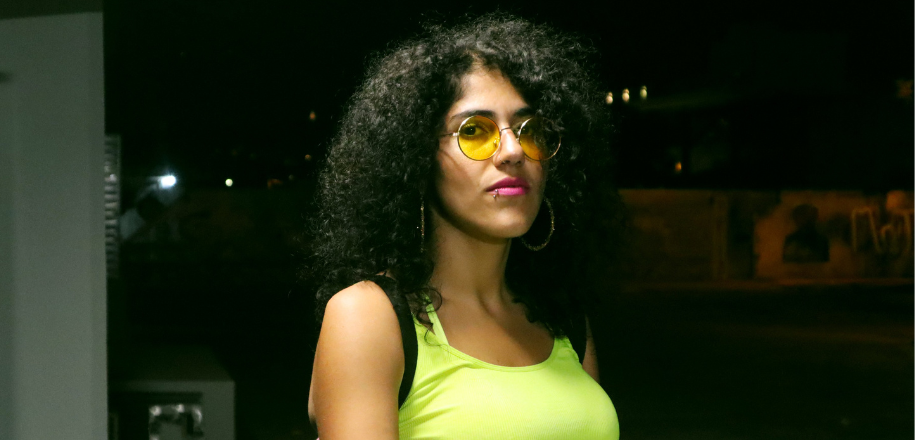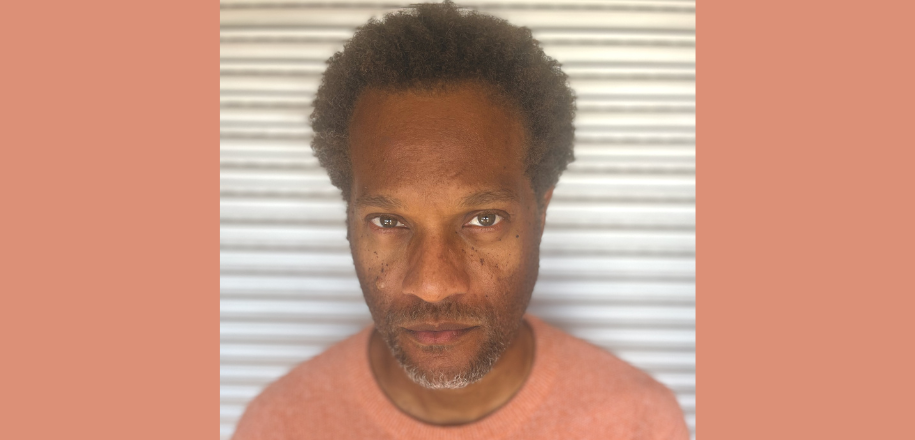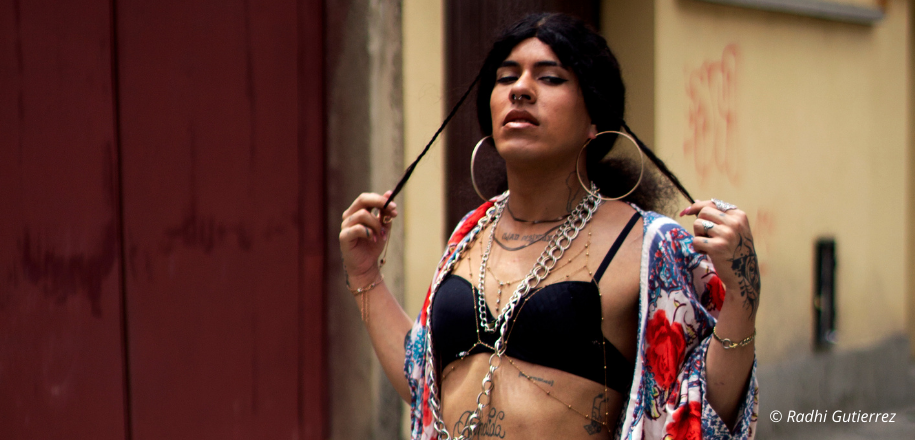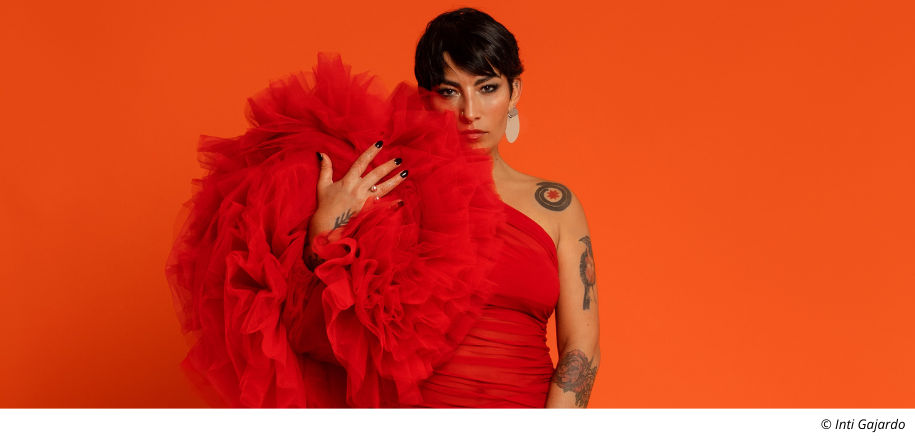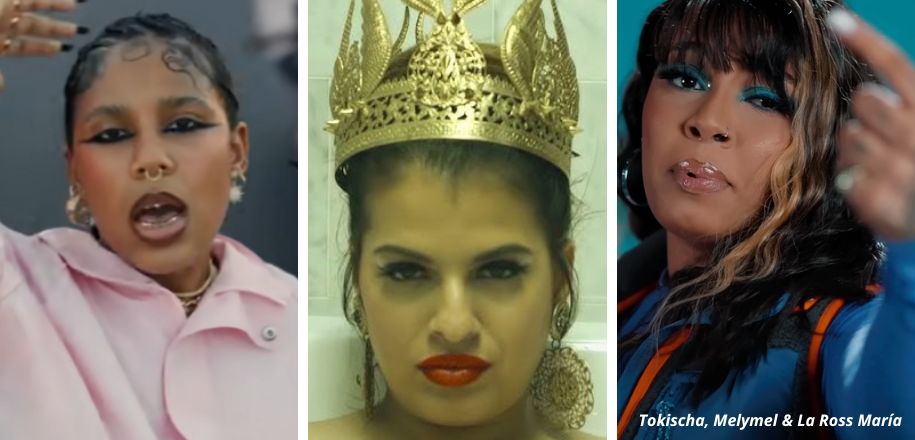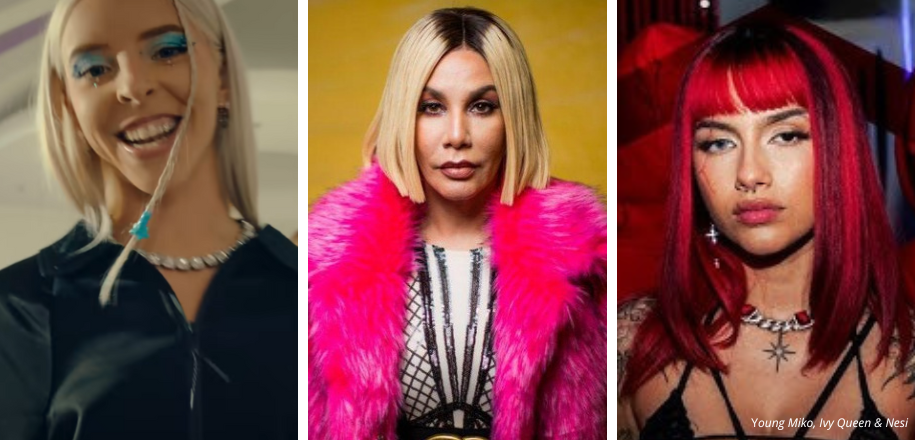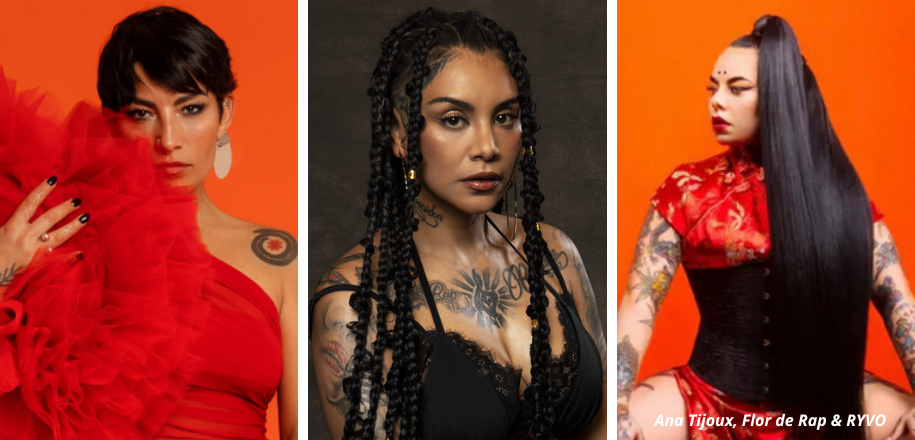Born in Athens, Greek-Egyptian rapper Sara ATH also lived in Cairo before moving to Berlin two years ago. The artist told us about her experience as an activist in anarchist, antifascist, and anticapitalistic groups, her feminism, her”political et biographical” rap and her new album Amazons of the Concrete.
You come from Athens but grew up in an Egyptian family, with a Muslim father (who was a major figure of male domination throughout your life) and a Christian mother. Can you explain the impact of this complex background on your desire to make music?
I think that the different experiences that have defined me as a person have influenced the way I make music anyway. This experience has also clearly influenced and defined it, which is reflected in “Στέκω Γυναίκα”. Ηowever, I think that although this is a condition, my own condition so to speak, it does not mean that in different cases of patriarchal domination within the family, similar cases of oppression against femininities do not arise.
Which artists did you listen to while growing up?
I was certainly influenced by many different genres of music, especially coming from the two cultures I grew up in, and I feel that it wouldn’t be fair, and I can’t make any real distinction between artists and specific genres of music.
You say feminist hip hop is what made you discover hip hop culture. What do you mean by “feminist hip hop”?
Actually, I haven’t phrased it exactly that way. I think in a previous interview I stated that feminist rap is the reason I started rapping. At the time I started, there was no MC in Greece who had explicitly feminist lyrics and I’m very happy and proud that I contributed to paving a way in that direction.
You joined anarchist, antifascist, and anticapitalistic movements when you were younger but were disappointed by the sexism and misogyny you encountered in those groups. How did rap music help you through this?
Interesting question… I’ve always found the concerns I’ve raised and the criticism I’ve made, especially about gender and feminist issues, whether within the broader social context or the movement itself, have not been particularly easy to express in the circles I’ve politicized in. So, rap has been my tool and outlet, allowing me to open these issues and speak my mind in public, without being trapped in explanation after explanation in political processes, in the context of which at that time the necessary space was not given.
How would you describe your music?
I do political rap with a lot of biographical references. What I describe in my tracks are either my experiences or political positions. Musically, I like old school rap very much, but I think I like the new elements that have been introduced and the evolution in the sound, such as electronic sounds.
As a person I find experimentation a challenge and I really like to try new things, for example drill beats. I don’t particularly like to have a predetermined result, I prefer diversity in my music. So lately and in this context of experimentation, I have even been flirting a little bit with reggaeton and african beats.
Your music and your life are strongly intertwined. Do you see yourself as an activist who makes music or an artist who does politics? Or both?
First, I will say that music is also part of my political activity. Over the years, emigrating to Berlin and trying to find my footing here and get in touch with the political life of the city and country I’m in, the boundaries between these categories have been blurred and at times I’ve done both.
Why did you leave Greece and move to Berlin and what did you gain from it as an artist?
I am an economic immigrant, I came to Berlin because I had to work, as did many of my comrades from Greece. Especially with the situation in Greece in recent years, it became necessary for many people to leave for abroad to be able to make a living.
For rap, being in another country makes it very difficult for people to get the messages you want to get across. So, the challenge was to succeed in that. Especially coming from Greece where the anti-commercial scene is much bigger and part of the movement, I realized that the scene here is more ” underground ” and that made it difficult for me to find myself somewhere and decide where I want to be and what I want to support.
On the other hand, I got in touch with people from the political rap scene in Germany, some of whom I’ve worked with and I’m very happy to see that I can get along with them and through collaboration and synergy, take things in a desired direction. So, I would say I’m optimistic about where we go from here on out.
You just released the album Amazons of the Concrete. Can you tell us how and with whom you worked on this project?
The new album is called Amazons of the Concrete and I basically worked on it with Paul from Krav Boca. Several people contributed to its creation though.
I have 4 featuring songs with Aeon, Krav Boca, Ratur and Mc Josh. The beats are by Zero, Nosfer, Critical, Amatomic, Krav Boca, and Kindred. The recordings were done by Spoke at Slomo Studio in Berlin and the Mix-Master was done by Incognito at the Pineline Studio in Athens.
The sound is mainly a bit dark and melancholic with old school influences, but also new sounds, drill, and electronics. The album is a release of BocaRecords.
What is the rap scene like for women and LGBT+ in Greece right now?
Nowadays the scene is much more friendly, we see a lot of females and lgbtqia+ people in it and I am happy about that, but I am concerned that the music industry along with the rise of #metoo is trying to incorporate, in accordance with its known capitalist tendencies, the music produced by these people. It’s important to remember that political rap is not just an opportunity to party, but also something more social. It’s of course nice to have fun, but that’s not all there is.
Any artists you would like to recommend?
I have the pleasure and honor of being part of the PowerRap Girlz collective, which includes many femmes and queer individuals and I highly recommend checking it out. More specifically Aeon, Rrrraaapp Skandalo, Luba Luft, Lini, m0stra, karoshi, Δαιμόνιο, Laru, iou.
How would you define your own feminism?
I would describe it as queer and intersectional, with an emphasis on questioning heteronormativity and classism, while encompassing identity politics and attempting to create safer spaces. Besides, and without a doubt, I believe in radical feminisms that arise from lower classes. At the same time, and as one might imagine given my origins, I am particularly interested in a BIPOC approach to it.
Do you have other upcoming projects besides your new album?
I’m preparing a song with Refpolk for his new album, and the video clip of “Wo Kommst Du Her” with MC Josh will be released soon. There have also been talks about other collaborations which you will hear about soon.
What do you think about Madame Rap? What should be changed or improved?
Very important that there is an effort to collect and showcase non cis male MCs. Especially the work that Madame Rap is doing, with a focus on the queer scene. The visibility of these artists is very important, and it makes me very happy that there are people running projects like this.

